
Ebay faces $2 billion fine for ‘rolling coal’ sales
Ebay is facing a fine of nearly $2 billion for allegedly enabling the sale of ‘rolling coal’ devices and other deliberately polluting equipment that violates environmental laws. The US Department of Justice alleges that the online retailer sold more than 343,000 so-called defeat devices in violation of the Clean Air Act, with each sale the subject of a $5,580 fine. Rolling coal has become a form of anti-environmentalism protest in the United States, involving the modification of a diesel engine in order to emit black clouds of sooty exhaust fumes. Online video compilations show drivers of pickup trucks deliberately rolling coal as they pass cyclists and electric vehicles. Until recently, the devices required to perform it were relatively easy to find through online retailers, costing between $200-500. The Justice Department wrote in its complaint, which was filed on behalf of the Environmental Protection Agency (EPA) in a federal court in New York, that the rolling coal devices “defeat motor vehicle emission controls” set out in the Clean Air Act. “Aftermarket defeat devices significantly increase pollution emissions – including carbon monoxide, nitrogen oxides, particulate matter and nonmethane hydrocarbons – that harm public health,” the complaint stated. The EPA criminalised the practice, which appears to be mainly confined to the US, in 2014, with some states warning of fines of up to $5,000 for anyone caught doing it. Several companies who sell coal rolling equipment have already been forced to pay fines of up to $1 million for breaking the law. “Our nation’s environmental laws protect public health and the environment by prohibiting the unlawful sales of defeat devices; unregistered, misbranded and restricted use pesticides; and unsafe products containing toxic chemicals,” David Uhlmann from the EPA’s Office of Enforcement and Compliance Assurance said following the Justice Department’s latest action against eBay. “The complaint filed demonstrates that EPA will hold online retailers responsible for the unlawful sale of products on their websites that can harm consumers and the environment.” Ebay described the lawsuit as “entirely unprecedented”, claiming that sales of such devices were banned and that it was actively policing its site against their sale. “Maintaining a safe and trusted marketplace for our global community of sellers and buyers is a fundamental principle of our business,” the company said. “Indeed, eBay is blocking and removing more than 99.9 per cent of the listings for the products cited by the DOJ, including millions of listings each year.” Read More World’s first solar powered hybrid truck tested on public roads Why is Elon Musk obsessed with the letter X? How Elon Musk’s Twitter became a haven for fake news and misinformation Viral WhatsApp warning of cyberattack targeting Jewish people is fake
1970-01-01 08:00
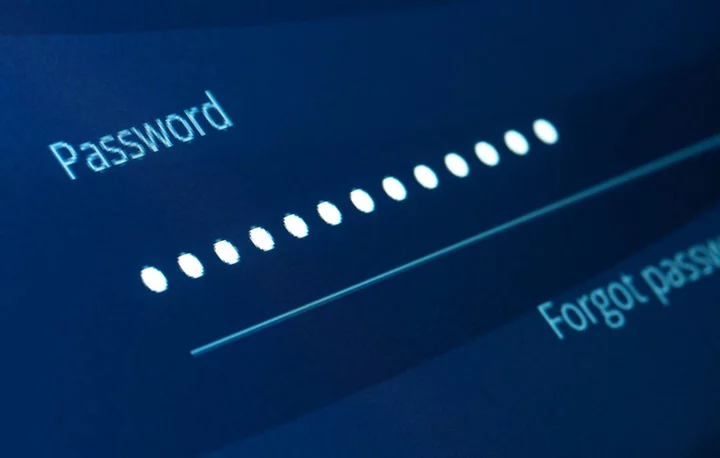
Google is about to ditch passwords forever
Google has announced that its apps and services will now be “passwordless by default” in an effort to make all users switch to passkeys. The move is part of a broader consensus among the tech industry to ditch passwords, which have been around since the 1960s, and switch to a safer and more efficient format to verify a person’s identity. Passkeys combine a code with biometric information like a fingerprint or facial recognition, making them easier to remember and harder to be stolen. Google apps like YouTube, Search and Maps all support the new format after it was first introduced earlier this year, though take up has been slower than expected. The tech giant said the push to get users to adopt passkeys coincided with Cybersecurity Awareness Month, claiming that the new technology is faster and more secure. “They are 40 per cent faster than passwords – and rely on a type of cryptography that makes them more secure,” Google product managers Sriram Karra and Christiaan Brand wrote in a blog post explaining the move. “We’ll continue encouraging the industry to make the pivot to passkeys – making passwords a rarity, and eventually obsolete.” Google users who do not already use passkeys will receive a prompt to set one up the next time they sign into their account. Passkeys have already been enabled by other online platforms, including eBay and Uber, as the tech industry looks to completely transition away from traditional passwords. “We’ve seen great results from launching passkeys across our apps and encourage all users to adopt passkeys,” said Ramsin Betyyousef, a senior director of engineering at Uber. “Ultimately this is a win-win for Uber and Uber’s customers.” Google, which counts billions of users across all of its platforms, acknowledged that “new technologies take time to catch on”, and have therefore given people the option to temporarily opt out of passkeys and use passwords wherever possible. The company did not set a date for when passwords will be phased out entirely, but some security experts contend that their death is inevitable while hackers continue to exploit their vulnerability. Helping implement the transition is the FIDO (Fast Identity Online) Alliance, which has been working with Apple, Google, Microsoft and hundreds of tech companies to develop the new login standard. “The complete shift to a passwordless world will begin with consumers making it a natural part of their lives,” said Alex Simons, who heads Microsof’s Identity Program Management team. “By working together as a community across platforms, we can at last achieve this vision and make significant progress toward eliminating passwords.” Read More Pixel 8: Google unveils ‘AI-centred’ iPhone rival Google to trial AI in UK traffic light systems to reduce stop-and-go emissions Pixel 8: Google unveils DeepMind-powered iPhone rival China’s discovery of never-before-seen ore could propel battery technology
1970-01-01 08:00

China’s discovery of never-before-seen ore could propel battery technology
A never-before-seen ore containing vast quantities of an element widely used in semiconductors has been found in China in a discovery that could propel new advances in battery technology. Geologists found rare earth metal niobium inside the new ore named niobobaotite from north China’s Inner Mongolia. The rare earth metal is widely used in alloys for jet engines and rockets and has also been shown to have exceptional current conducting properties in low temperatures. Some researchers have said batteries made from niobium have several advantages over traditional lithium-ion batteries. The main source of niobium until now has been from the ore mineral columbite that is extracted widely in Canada, Brazil, Australia and Nigeria, with China obtaining nearly 95 per cent of the element for its steel industry via imports. If geologists can prove that sufficient volume and quality of niobium can be extracted from niobobaotite, experts said it could help make China “self-sufficient”, reported the South China Morning Post newspaper. The niobobaotite ore has received official approval from the International Mineralogical Association’s classification committee, according to the China National Nuclear Corporation, a state-run enterprise responsible for overseeing China’s civilian and military nuclear programmes. The Brazilian Metallurgy and Mining Company (CBMM) has been working on new projects towards the use of niobium to make advanced lithium-ion batteries. China’s state news agency Xinhua reported earlier this year that CBMM is partnering with universities, research centres and battery makers to improve the use of the rare earth element in lithium batteries. Niobium batteries are expected to bring several advantages over traditional lithium-ion batteries that tend to pose challenges like safety risks, short life cycles and long charging times, Antonio Castro Neto, director of the National University of Singapore’s Centre for Advanced 2D Materials, said earlier this year. “We have made significant progress in our development of niobium-graphene batteries which are proving to be a game changer in safety, efficiency, and sustainability,” Dr Neto said. Researchers said the performance duration of niobium-graphene batteries can be 10 times longer than traditional lithium-ion batteries, thus making them last for an estimated 30 years and make them more durable and reliable as well. These batteries, currently in development, can also be fully charged in less than 10 minutes, they said. “As they have a longer lifespan, the new graphene-niobium batteries significantly reduce total cost of ownership compared to existing lithium-ion batteries and have ultrafast charging capabilities. In addition, they offer higher safety as they do not risk explosion even in high temperatures,” Rogerio Ribas, CBMM’s global head of batteries, said in a statement. Read More China’s ‘government-approved’ AI chatbot says Taiwan invasion is likely Australian-Chinese journalist detained for 3 years in China returns to Australia Driver killed after crashing into Chinese consulate in San Francisco had knives and crossbow EU asks Elon Musk to ‘walk the talk’ on X/Twitter disinformation over Hamas attack Earth hit by a huge solar storm that would devastate civilisation, trees show Viral WhatsApp warning of cyberattack targeting Jewish people is fake
1970-01-01 08:00
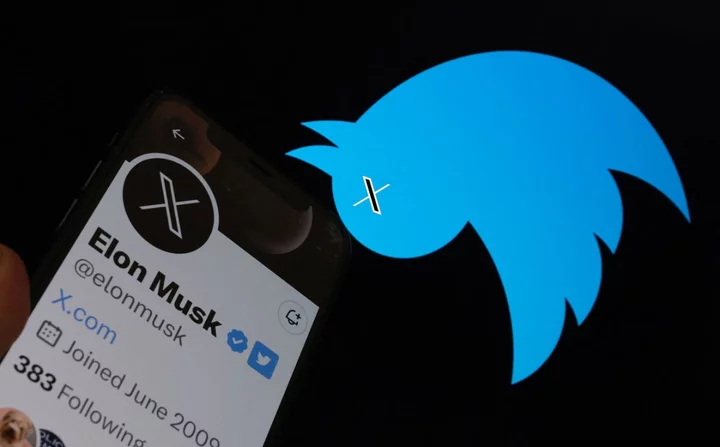
EU asks Elon Musk to ‘walk the talk’ on X/Twitter disinformation over Hamas attack
A top EU official has asked X/Twitter owner Elon Musk to “walk the talk” when it comes to curbing fake content and the glorification of violence following the terror attack against Israel by Hamas. EU commissioner Thierry Breton wrote in an open letter shared on X that illegal content and disinformation were being shared via the social media platform about the Hamas incursion into Israel, which began on Saturday. He warned the EU could punish X for failure to comply with its obligations to moderate content under the Digital Services Act, and gave Mr Musk 24 hours to give a “prompt, accurate and complete response”. “You need to be very transparent and clear on what content is permitted under your terms and consistently and dingently enforce your own policies,” Mr Berton said, adding that the social media company “must be timely, diligent and objective” in taking action and removing relevant content when it receives warranted notices of illegal content in the EU. “I therefore invite you to urgently ensure that your systems are effective, and report on the crisis measures taken to my team,” the EU commissioner said, calling for Mr Musk to respond within 24 hours. Replying to the statement, the Tesla chief called on the commissioner to “list the violations”. “Our policy is that everything is open source and transparent, an approach that I know the EU supports. Please list the violations you allude to on X, so that that the public can see them,” the multibillionaire posted on X. “You are well aware of your users’ – and authorities’ – reports on fake content and glorification of violence. Up to you to demonstrate that you walk the talk,” Mr Breton said in response to Mr Musk’s tweet. While X has claimed it was treating the ongoing crisis in Israel with its highest level of response, watchdog groups and the EU said misinformation and harmful content continue to flourish on the microblogging platform. X’s own safety team acknowledged there had been an increase in daily active users on X in the conflict area in the past couple of days, saying that there have been more than 50 million posts globally focusing on the weekend attack. “As the events continue to unfold rapidly, a cross-company leadership group has assessed this moment as a crisis requiring the highest level of response,” the team said. The struggle to find reliable news on the platform was exacerbated when Mr Musk himself flagged two accounts as “good” for “following the war”. Journalists, however, pointed out that these accounts had previously shared a fake AI-generated image of an explosion at the US Pentagon, and that one of them had also posted antisemitic comments. Mr Musk’s posts recommending them have now been deleted. Users on the platform also pointed out that old videos are being repackaged and circulated on X as if they are from the most recent attack. One widely shared video falsely claimed to show a Hamas militant shooting down an Israeli helicopter, but was later found to be a clip from a video game. “Public media and civil society organisations widely report instances of fake and manipulated images and facts circulating on your platform in the EU, such as repurposed old images of unrelated armed conflicts or military footage that actually originated from video games,” the Eu commissioner said in his letter addressing Mr Musk. X has not immediately responded to The Independent’s request for comment. Read More X promises 'highest level' response on posts about Israel-Hamas war. Misinformation still flourishes Holocaust survivor among hostages and ‘several Americans’ may have been killed or kidnapped, says Blinken Musk begs Twitter users to stay ‘as close to the truth as possible’ as fake news about Gaza war proliferates
1970-01-01 08:00

Exclusive-Southeast Asia eyes hands-off AI rules, defying EU ambitions
By Fanny Potkin and Supantha Mukherjee SINGAPORE/STOCKHOLM Southeast Asian countries are taking a business-friendly approach to artificial intelligence
1970-01-01 08:00
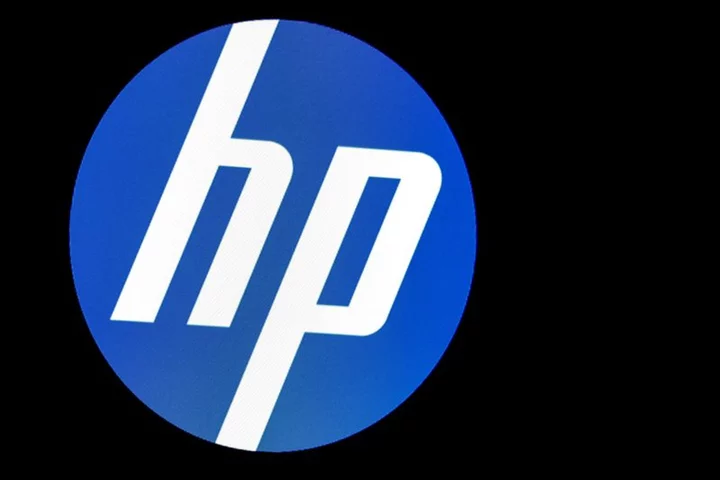
HP announces outlook for fiscal 2024 and hikes annual dividend
HP Inc on Tuesday forecast fiscal 2024 earnings largely in line with estimates and raised its annual dividend,
1970-01-01 08:00
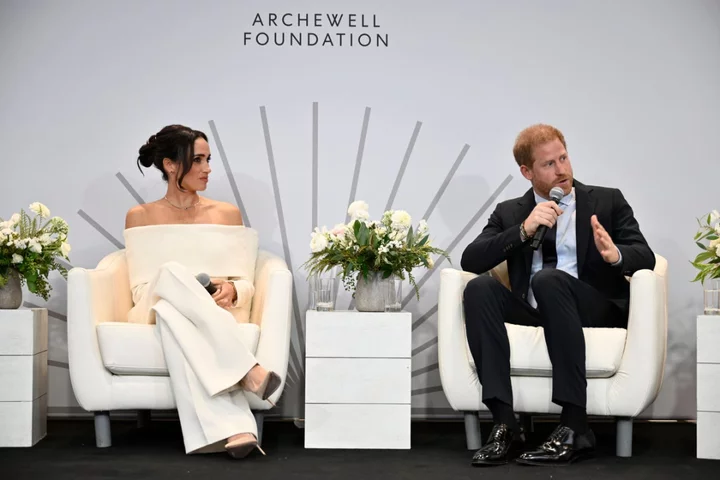
Duke and Duchess of Sussex call for overhaul of social media
The Duke and Duchess of Sussex have urged social media companies to reduce the amount of harmful content children can see online to protect their mental health. Harry and Meghan made the remarks at a mental health awareness festival run by non-profit Project Healthy Minds in New York on Tuesday. They are visiting the city for the first time since being caught up in what they called a catastrophic car chase there in May. The royal couple, who have spoken about their own mental health challenges in the past, took part in a panel discussion alongside US surgeon general Vivek Murthy moderated by NBC host Carson Daly, who has previously spoken of his struggles with anxiety. The event, on World Mental Health Day, has been co-ordinated by the duke and duchess’s Archewell Foundation. The couple called on social media firms to adopt better content moderation policies and tweak apps which can prove addictive for youngsters. They spoke after hearing from parents who have lost children to mental health issues linked to social media use. The duke urged tech bosses to “stop sending children content you wouldn’t want your own children to see”. The duchess said she and her husband are focusing on what they can do behind the scenes to make social media use “safer, better and more positive” and that the couple have spoken to tech executives about the issue. She added: “People are getting hurt – and people, specifically children, are dying. “A year ago we met some of the families, not all of them. At that time, it was impossible to not be in tears as I’m sure so many of you have been today hearing these stories. “As parents, our kids are really young – they’re two-and-a-half and four-and-a-half – but social media is not going away. “I think by design, there is an entry point that is supposed to be positive, in creating community and something has devolved, and there is no way to hear that and not try to help these families have their stories be heard.” In the UK, the Princess of Wales gave a speech to young people gathered in Birmingham for a day of workshops and discussions to mark World Mental Health Day, with her husband in the audience. Harry and Meghan were all smiles when they visited the Marcy Lab School in Brooklyn, New York earlier on Tuesday. The school’s website claims it is the “alternative to college that you have been looking for” for people looking to start a career in tech. Harry was applauded when he told a meditation class that “if one of you starts to go quiet, doesn’t show up, you need to find out why” and added “remember to have fun”. Meghan, who was wearing a varsity letterman jacket given to her at the Robert Clack School in Essex in March 2020, told a class she wishes her children were with her but they are “doing well”. Students later rushed to take pictures with the royal couple before the school’s co-founder Reuben Ogbonna joked “back to class, everyone”. Read More Google to trial AI in UK traffic light systems to reduce stop-and-go emissions Broadband customers face £150 hikes because of ‘outrageous’ rises – Which? Rise of AI chatbots ‘worrying’ after man urged to kill Queen, psychologist warns William hails ‘amazing’ eco-friendly start-up businesses Royal website subject to ‘denial of service attack’, royal source says TikTok finds and shuts down secret operation to stir up conflict in Ireland
1970-01-01 08:00

Who is playing college football tonight, Oct. 10?
Conference-USA and the Sun Belt get college football started early this week with several games on the schedule for Tuesday night.
1970-01-01 08:00

EU warns Elon Musk of 'penalties' for disinformation circulating on X amid Israel-Hamas war
European officials warned X on Tuesday that the company formerly known as Twitter appears to have been hosting misinformation and illegal content about the war between Hamas and Israel, in potential violation of the European Union's signature content moderation law.
1970-01-01 08:00
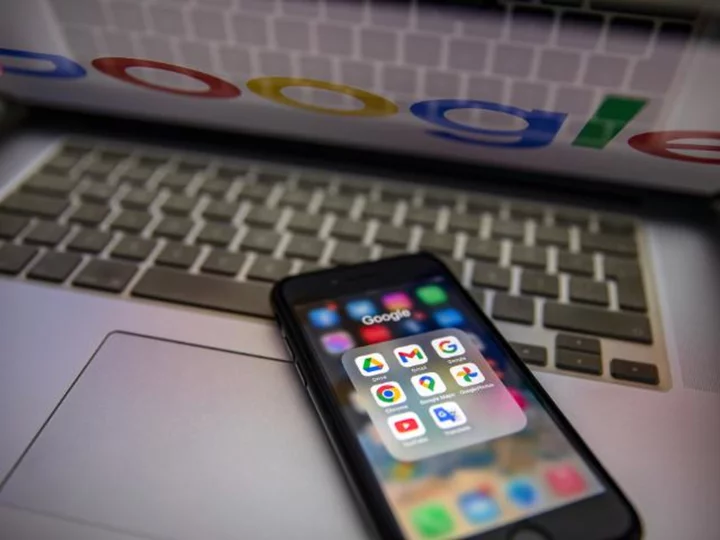
Google looks to do away with passwords, making 'passkeys' the default option
Google is looking to make passwords obsolete by prompting users to create passkeys to unlock accounts and devices with a fingerprint, face scan or pin number.
1970-01-01 08:00

You Can Get Top-Rated Tech Products For Their Lowest Prices Of The Year During October Prime Day
With these October Prime Day tech deals, you can save on Apple AirPods, Bose QuietComfort Earbuds II, and so much more.
1970-01-01 08:00
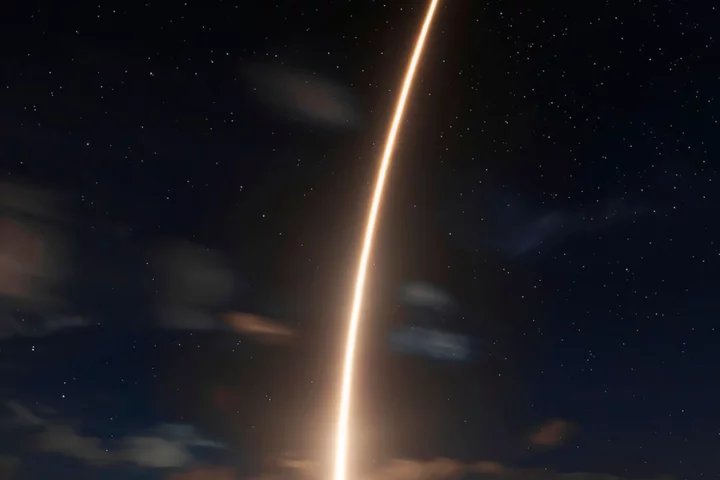
Someone could soon be killed or injured by falling satellites every two years, US official report warns
Someone could soon be at risk of dying or being injured by a falling satellite every other year, according to a new report. By 2035, if SpaceX’s Starlink space internet satellites continue to grow in number, then they some 28,000 pieces of them will be falling from the sky each year, according to a report from the Federal Aviation Authority. The chance of one surviving its fall to the ground and injuring or killing someone would be 0.6 per year, it said – which would make it likely to happen once every two years. They could even pose a risk to aircraft, it said. The probability of an aircraft being downed by a satellite would be 0.0007 per year by 2035, the report claimed. The report was commissioned amid increasing concern about falling space debris, and the vast collection of material that has been put into space in recent years. Companies such as SpaceX are launching more and more satellites each years, and experts have warned that there is a danger of collisions both in space as well as on the ground. The new report aimed to evaluate the risk posed by that falling space debris. It also suggests that some of the danger could be limited with more regulation. But it notes that the FAA does not have any power over launches that happen outside of the US. As with many of the problems in space, the world currently lacks an international approach to space debris, new satellites and the dangers that those objects might pose. The report primarily looked at the constellation of satellites that have been launched and are planned by SpaceX, for instance. The company has launched 5,000 such satellites already, and plans to increase that dramatically, and SpaceX represents over 85 per cent of the risk posed to people on the ground, the FAA’s report said. But it did not look at other networks of satellites planned in other countries. Recent reports have suggested that China is planning its own huge constellation of satellites that will also offer their own space internet, named Guowang, for example. SpaceX has said that the analysis used to calculate the number is “deeply flawed” and based on false assumptions about the danger posed by its satellites. The company’s satellites are more likely to burn up on entry than the report assumed, the company’s principal engineer David Goldstein wrote in a letter to the FAA, according to a report from Space News. Read More PlayStation announces brand new version of the PS5 ChatGPT founder says bitcoin is ‘super logical’ next step for tech Google to trial AI in UK traffic light systems to reduce stop-and-go emissions
1970-01-01 08:00
